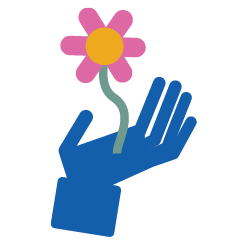What to know
- In Phase III, ATSDR begins to maintain trust and communication over an extended period of time.
- Phase III is about proactively maintaining relationships and following through on commitments.

Maintaining Trust and Communication Over Time
So, you have entered a community and hosted a successful kick-off meeting with community members. You can see that community members are optimistic about your involvement; interest in their concerns, opinions, and ideas; and your objectives. However, it is one thing to come in to get things going. It is another thing to maintain trust and communication over an extended period of time.
You can capitalize on the momentum established during initial engagement activities. Do this by proactively maintaining relationships and communication within the community and following through on commitments. Sustaining engagement throughout the duration of your public health work will affect the community’s willingness to engage in the work. Engagement will also affect the community’s willingness to accept ATSDR’s conclusions and recommendations. Community engagement activities during this Phase focus on:
- Listening to community concerns
- Strengthening relationships
- Communicating progress and updates
- Delivering health education and “train the trainer” activities when necessary, and
- Building community capacity.
Ask Yourself
- How will you stay in regular communication with the community?
- How will you be transparent about goals, priorities, and commitments as they evolve?
- How can you communicate risk clearly, concisely, and accurately?
- What can you do to build community understanding of contamination-related health effects?
- How are the community engagement activities being received by community members? What needs to be changed, refined, further addressed?
- What can ATSDR do in collaboration with the community to create change, improve health and wellbeing, and promote community resilience?
Keep in Mind
Conflict happens. Community members affected by environmental contamination may feel angry, fearful, or distrustful. Difficult situations can arise when an audience is hostile towards you, ATSDR, or another person or organization involved. Do not judge when people express their feelings. Instead, listen empathetically. Acknowledge their feelings and concerns. Always respond in a calm and professional manner, regardless of what is expressed. Be open to new allies and continue to gather and share information as needed.

